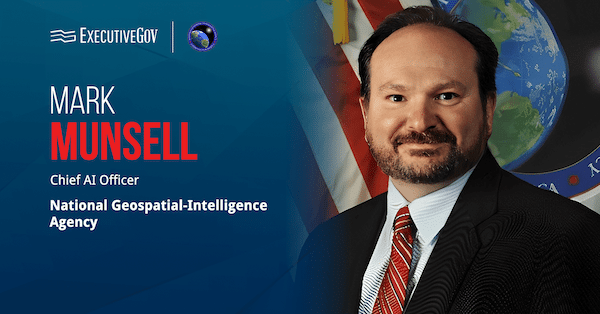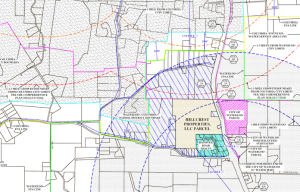Data center dialogue

Recent news regarding the possibility of a large-scale data center in the Rock City Admiral Parkway Development cave business complex in Old Valmeyer has raised a number of concerns.
One local expert in the field of computer science and artificial intelligence offered his thoughts on what such an addition to the complex could mean for the county.
As previously reported, an AI data center at Rock City is currently only hypothetical, as no such project has been officially confirmed.
Signs do indicate that such a development is being pushed toward given a submission to the Illinois Department of Natural Resources “Ecological Compliance Assessment Tool” concerning a “Rock City 200 (MegaWatt) Gas Fired Power Facility.”
Such facilities have been tied to proposed AI data center developments in New York and Ohio just this year.
Additionally, Rock City already serves as host to Grid Rock Data Center, a data storage facility with substantially less power and water needs than an AI data center.
A handful of concerned citizens attended Tuesday night’s Valmeyer Village Board meeting.
Concerns were reiterated about a possible data center – including possible issues with a high demand for electricity, water consumption and other safety matters.
Valmeyer Mayor Howard Heavner fielded questions from the visitors, but ultimately concluded that any discussions are premature as there are no pending agreements to bring another data center to Rock City.
Heavner added that Admiral Parkway, Inc. owner Joe Koppeis has been working to bring a business of that nature to Rock City for at least the past 10 years.
Heavner also noted that while the village itself does not have much say in what types of businesses lease the Rock City space, it does have a responsibility to ensure nothing would be put in place that would endanger local residents or properties.
Offering his thoughts on a prospective data center development is Waterloo native Mark Munsell, who has held a number of positions over his career – though a great deal of his work has been done with the National Geospatial-Intelligence Agency, where he served as chief technology officer and later as chief AI officer.
Munsell’s current work has him pushing to build economic development in the region.
“I lead a nonprofit effort to do economic development in the St. Louis region,” Munsell said. “Part of that is to promote and leverage the use of what we call geo-AI, geospatial AI, which is for trying to solve some of the world’s most difficult social, economic and national security challenges. That technology needs AI to solve, for example, hydrological problems. You need computers, massive computers to solve some of those problems. You need massive computers to be able to predict climate change.”
As some have voiced concerns online about the negative impact a major data center could have on the area, Munsell has voiced his opinions to the contrary on Facebook.
In speaking with the Republic-Times, Munsell discussed how and why data centers set up where they do.
He pointed to Texas as a particular hotspot for data centers thanks in large part to its rural and economic landscape, offering plenty of space and incentives for businesses to build these facilities there.
A similar situation exists throughout the Midwest, Munsell said. He also noted how saturated the coasts are with data centers, particularly areas he’s seen in Northern Virginia.
Regarding a potential development in Monroe County, he suggested a major data center making use of the naturally cool environment in Rock City – as Grid Rock Data Center has already done – makes sense.
Similarly, such a facility could make use of the nearby Mississippi River as a source of water for cooling purposes rather than having a heavy impact on an aquifer or other water reserve.
Munsell further spoke to the benefits a data center could have, suggesting the needs of such a facility would likely demand improvements to electricity transmission and internet access for folks in the area.
“The most basic, fundamental benefits are, believe it or not, faster access to services,” Munsell said. “For the average consumer, the average citizen of Monroe County, you would be having very high speed internet, very low latency to their applications.”
He again pointed to Virginia and the communities he’s seen experience a great deal of investment thanks to data center developments.
“If you look at Northern Virginia and what they’ve been able to develop around there, those counties in Northern Virginia have so much tax money, it’s almost like their streets are paved with gold out there with the kinds of services they provide the public,” Munsell said. “And Monroe County has a long tradition of not collecting tax money from companies but collecting it from individuals, property owners.”
Along with potential benefits to infrastructure and the tax base, Munsell indicated that a large data center could offer jobs for the community when it comes to building the facility and staffing it. Such staffing jobs, he said, often feature decent wages and don’t necessarily demand a college degree.
“If I were thinking about my kids and my grandkids, where they would work, I’d be thrilled for them to work at a data center,” Munsell said. “I’d be thrilled for them to work at Google. I think that would be awesome here in Monroe County… People in the county are just so comfortable with us driving 30 miles to work into St. Louis with the gas you’re burning to do that, the emissions you’re putting out. We need some jobs in Monroe County. We really do.”
He also addressed some concerns folks have expressed about a new data center.
One such concern is electricity cost, which appears to be a concern nationwide in areas where AI data centers have developed.
An Oct. 17 article from CNN titled “Is AI really making electricity bills higher? Here’s what the experts say” describes how areas near data centers have seen an increase in electricity costs of as much as 267 percent compared to costs five years ago.
That article also notes that demand for electric-based heating systems in homes and other items has increased, though it places emphasis on the apparent correlation between electricity costs and the boom in AI data centers, also noting how Oregon has passed a bill to ensure data centers pay for their impact on the state’s electrical grid rather than spreading that cost to consumers.
That article cites a Sept. 29 article from Bloomberg titled “AI Data Centers Are Sending Power Bills Soaring” which provides a map detailing how the cost of a megawatt-hour of electricity has doubled in certain regions of the country.
Munsell placed his concerns on the potential and hopefully temporary cost of infrastructure a data center might have, suggesting rates could increase as power companies pay for the expansive upgrades to their system and generation
“If done correctly and if the right deal is made through good planning and good civic leadership, you can negotiate that so that we all get an upgrade on our electrical infrastructure, and it will cost us a lot less money for that upgrade,” Munsell said.
He also spoke about water consumption when it comes to cooling a data center, noting that the consumption of a basic data center is fairly minimal, though AI data centers tend to be substantially more thirsty.
He emphasized, however, that while a data center might evaporate water as part of its cooling process, that water doesn’t just disappear. Munsell also pointed again to how the Mississippi River serves as an ideal source of water for such cooling needs.
Munsell ultimately stressed the benefits a major data center could have for the area, remarking that a unique feature like Rock City serves as an excellent opportunity to bring such a facility to Monroe County.
“I don’t know how many underground facilities that could house a data center there are in the country, but there’s not many,” Munsell said. “This would be special for Monroe County to have something like this. This is something I personally would be proud of.”
For more thoughts from Munsell, click here for an op-ed he submitted to the Republic-Times.






